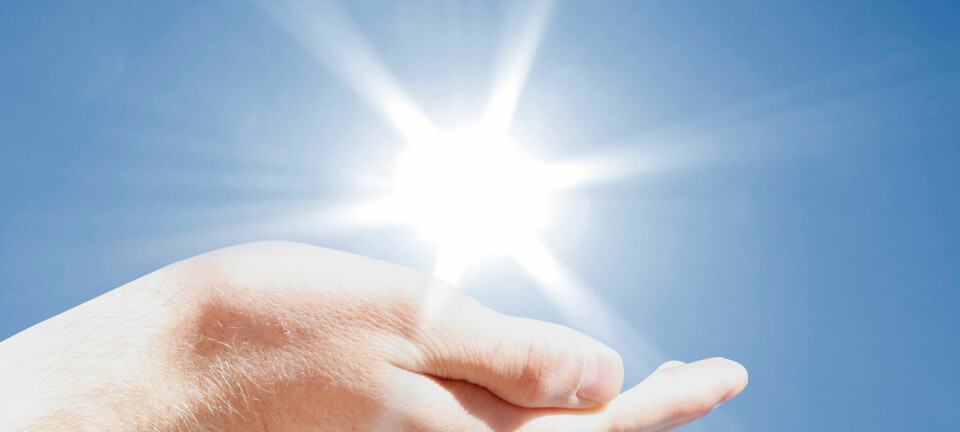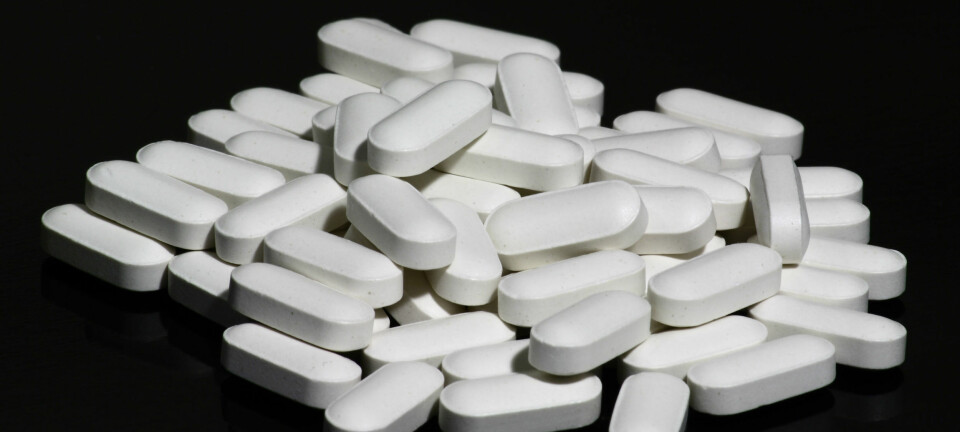
New study: we're not getting enough vitamin D
Official vitamin D recommendations are way too low, and Scandinavians are not getting anywhere near enough vitamin D.
Cancer, diabetes, high blood pressure, poor semen quality, depression, and osteoporosis.
There seems to be no limit to the illnesses that vitamin D can affect.
Even though knowlegde connecting low levels of vitamin D with severe health issues is available, people are still getting far too little of the vital vitamin.
According to a new study that reviewed all the latest studies on vitamin D, Scandinavians need much more vitamin D than the health authorities have been recommending.
10 µg of vitamin D reduces mortality
For this reason, the Nordic Nutrition Recommendations have been changed, now recommendning that people get 10 µg of vitamin D a day instead of the previous 7.5 µg.
"Vitamin D is a hot topic at the moment,” says Professor Inge Tetens from the National Food Institute at Denmark's Technical University (DTU), who sits in the working group under the Nordic Council of Ministers that is responsible for updating the Nordic nutrition recommendations.
"The review of the latest studies shows that people in Scandinavia need to get more vitamin D from their diet than recommended by the previous working group,” says Tetens.
The literary review that lead to this conclusion was assessed by nutrition researchers from Finland, Norway, and Iceland.
It consists of a systematic review of 1,706 studies published between 2000 and 2010 on the correlation between vitamin D, status, and health effects.
The review concludes that:
-
10 µg of vitamin D per day is necessary if health promotional effects are to be achieved for people resident in the Nordic Region, where the sun does not shine for much of the year.
-
There is solid evidence that adequate doses of vitamin D strengthens the bones and reduces overall mortality in the population.
-
It is likely that vitamin D also has a beneficial effect on the muscles.
-
There are signs, that vitamin D can help prevent cancer, diabetes and obesity.
"Much of our vitamin D requirement is covered by the Sun but in the Nordic countries the Sun doesn't shine very much for most of the year. Which is why we need more vitamin D through our diet," says Tetens.
Professor: upping the recommendation makes sense
One of Denmark's leading scientists in the field of vitamin D research is associate professor Lars Rejnmark from Aarhus University's Department of Clinical Medicine. He is not surprised by the new study's conclusions and applauds the fact that vitamin D recommendations have now been updated.
"It's indeed sensible to increase the recommended dose as vitamin D deficiency is common in Denmark, especially during the winter months," says Rejnmark.
Furthermore, Rejnmark is not surprised by the discovery that current evidence regarding the effects of vitamin D deficiency on diseases like cancer and diabetes is ambigious.
However, he pushes for more public awareness.
"I do agree that there's not yet sufficient evidence for us to state publicly that people should take vitamin D to help prevent cancer, diabetes, and cardiovascular disease," he says.
Recommendations are not enough
Although Rejnmark appreciates that the Nordic recommendation has been increased, he emphasises that the health authorities' recommendations are not enough to have an effect on the amount of vitamin D people consume.
A report from 2010 shows that the Danes consume less than half of the 7.5 µg recommended by the authorities.
“Changing the recommendations doesn't make any difference,” says Rejnmark.
Instead people should get sun exposure a few minutes every day and eat fatty fish, such as salmon or mackerel a couple of times a week.
"A hundred grams of fish can contain as much as 25 µg a vitamin D, so if you eat fish a couple of times a week you're pretty much covered," says Rejnmark. "But you should be aware that farmed salmon often only contains a third of the vitamin D found in wild salmon."
Rejnmark believes that foods should be enriched with vitamin D in the same way as iodine is added to salt to ensure that people get what they need.
"If we're to take the Nordic nutritional recommendations seriously, I think we should consider enriching certain foods with vitamin D," says Rejnmark.
-----------
Read the original story in Danish on Videnskab.dk
Translated by: Louisa Field









